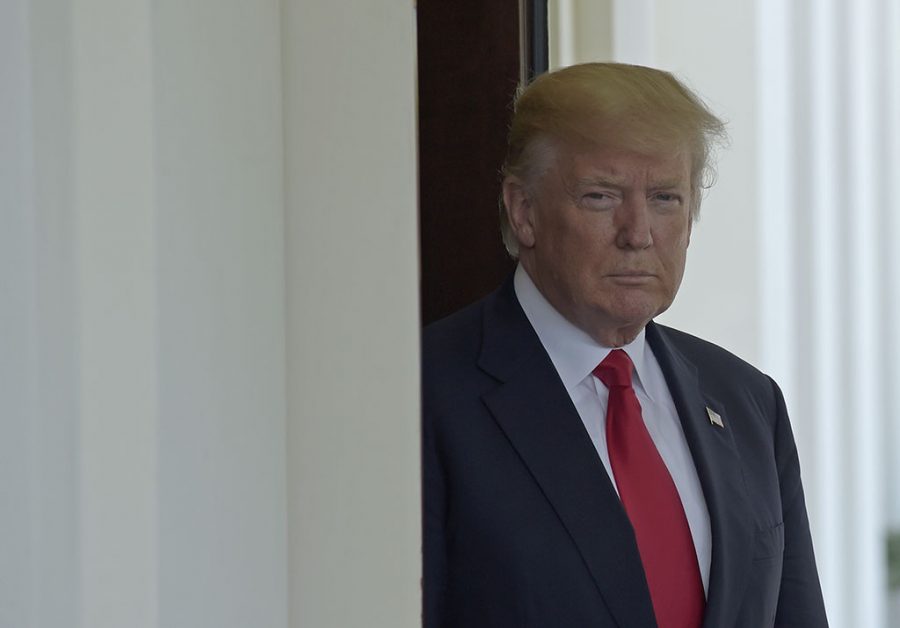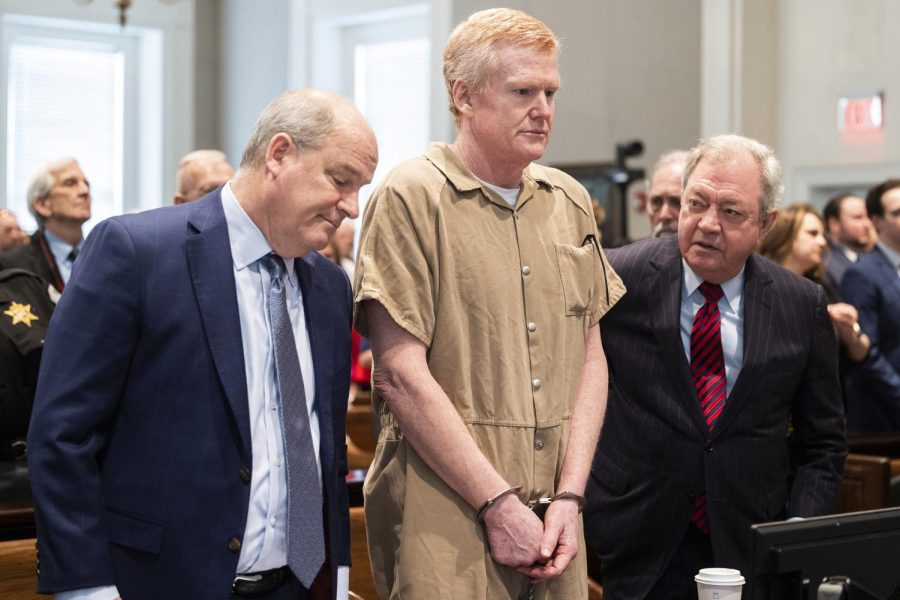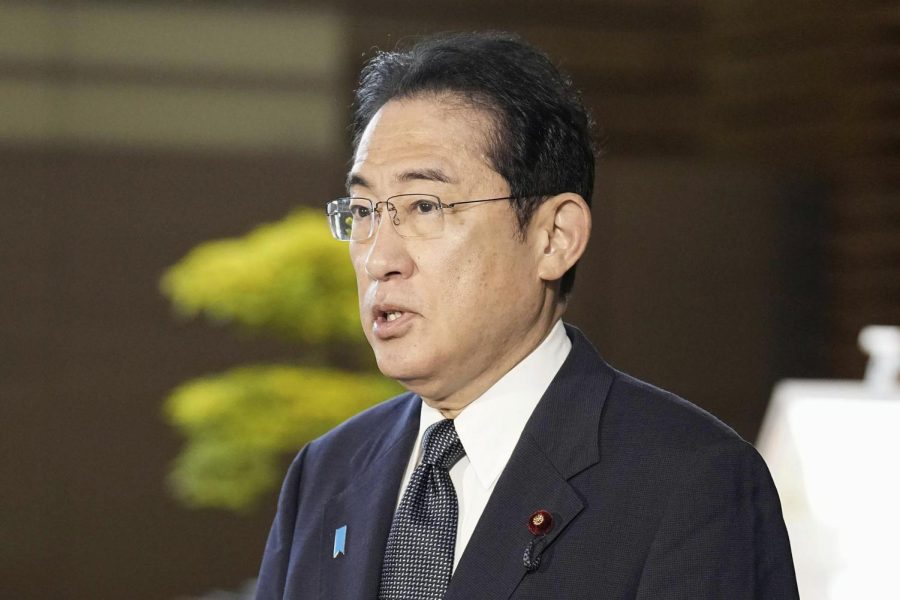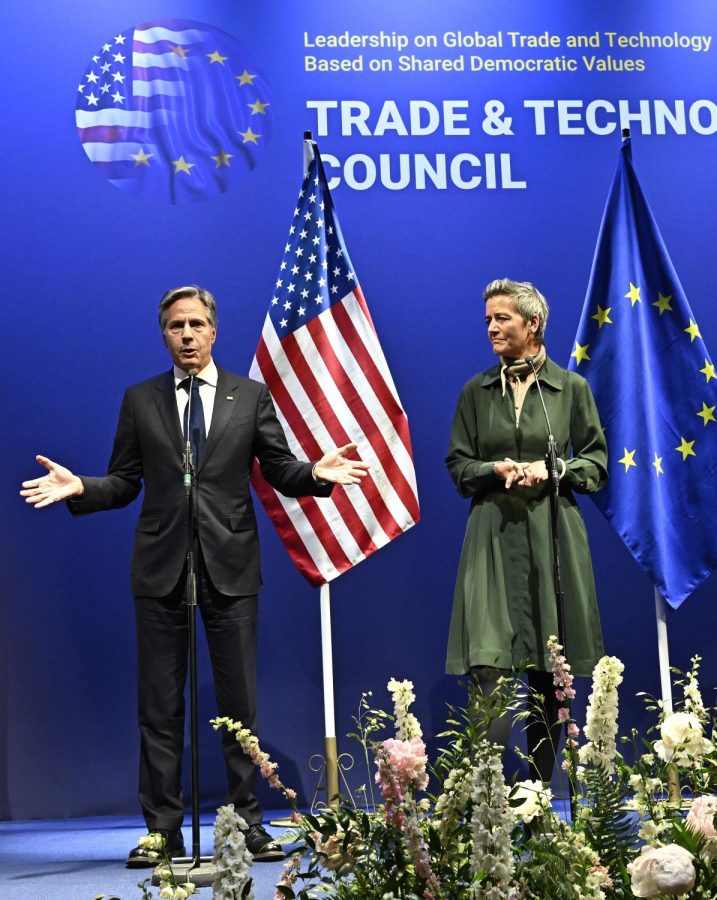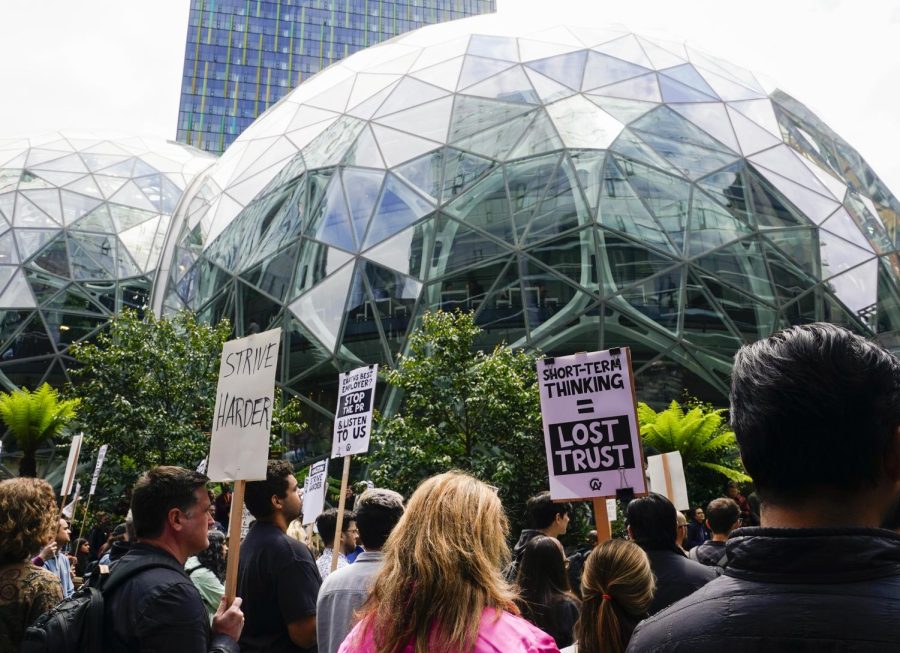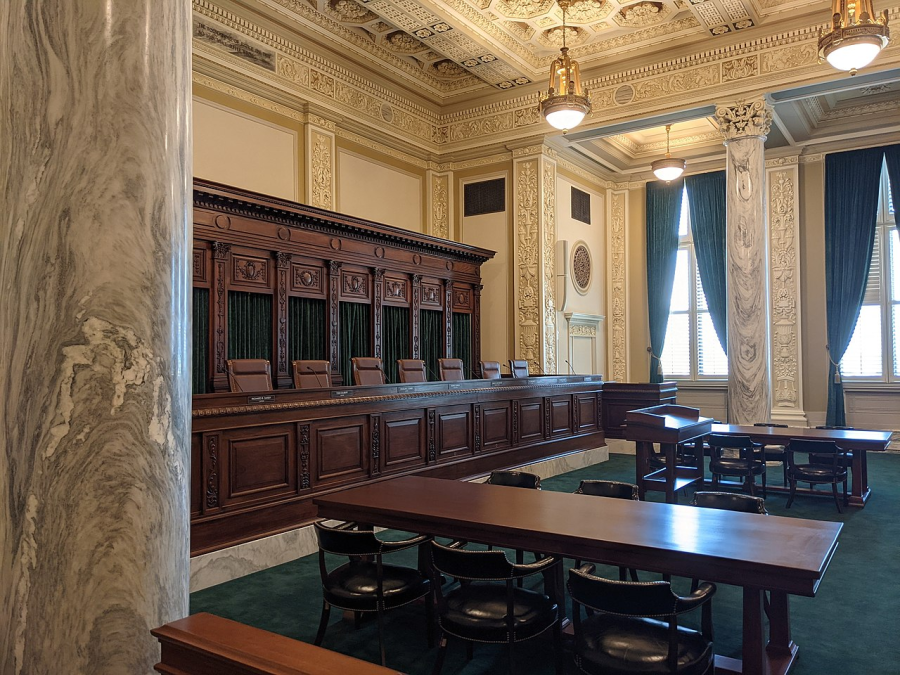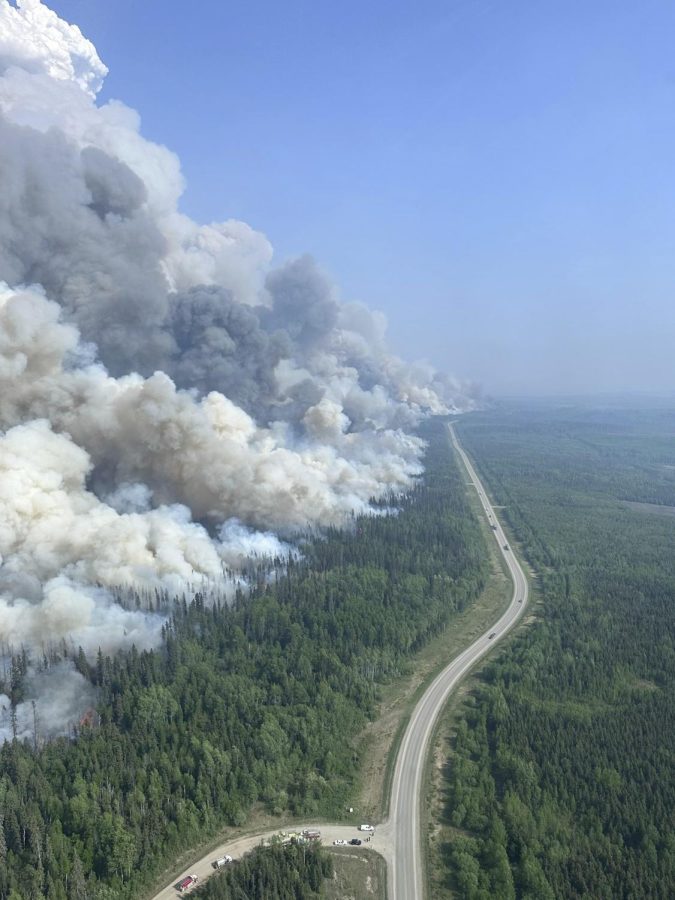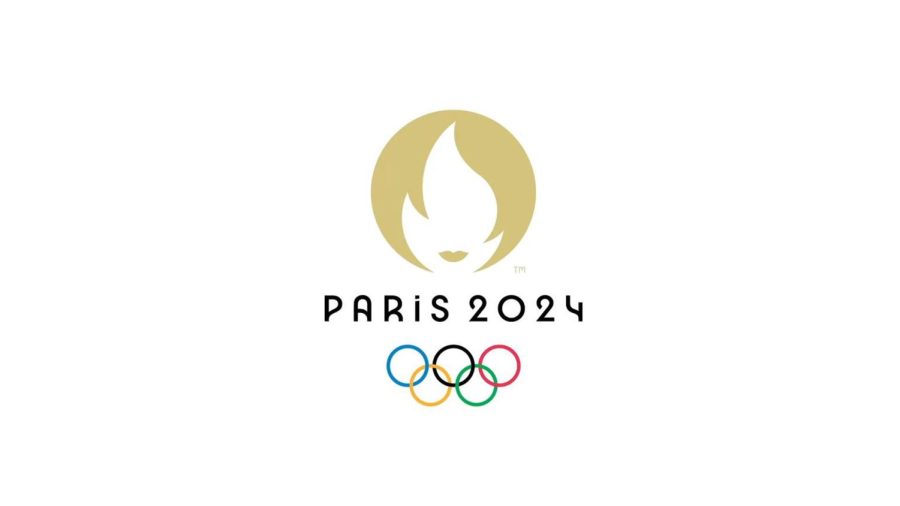Associated Press
WASHINGTON — President Donald Trump is expected to withdraw the United States from the Paris Climate Accord, a landmark global climate agreement. A White House official said Wednesday Trump and aides were looking for “caveats in the language” related to the exit and had not yet made a final decision.
Leaving the deal would fulfill a central campaign pledge but would anger international allies who spent years in difficult negotiations that produced an accord to reduce carbon emissions.
Trump faced considerable pressure to hold to the deal during visits with European leaders and Pope Francis on his recent trip abroad. The official, who insisted on anonymity to discuss the decision before the official announcement, said the president and his aides were finalizing the details of a pullout.
Trump himself tweeted that that an announcement is forthcoming.
I will be announcing my decision on the Paris Accord over the next few days. MAKE AMERICA GREAT AGAIN!
— Donald J. Trump (@realDonaldTrump) May 31, 2017
While Trump currently favors an exit, he has been known to change his thinking on major decisions and tends to seek counsel from a range of inside and outside advisers, many with differing agendas, until the last minute.
A second White House official, who was not authorized to discuss private conversations and also insisted on anonymity, said Trump had not made a final decision on how to proceed.
Trump’s top aides have been divided on the accord.
He was to meet later Wednesday with Secretary of State Rex Tillerson, who has favored remaining in the agreement. Chief strategist Steve Bannon supports an exit, as does Environmental Protection Agency administrator Scott Pruitt. Senior adviser Jared Kushner generally thinks the deal is bad but would like to find a way to see if U.S. emissions targets can be changed.
Trump’s influential daughter Ivanka Trump’s preference is to stay, but she made it a priority to establish a review process so her father heard from all sides, said one of the officials.
A global pact
Nearly 200 nations, including the United States under President Barack Obama’s administration, agreed in 2015 to voluntarily reduce their greenhouse gas emissions in an effort to combat climate change. Withdrawing would leave the United States aligned only with Russia among the world’s industrialized economies.
A senior European Union official said the EU and China would reaffirm their commitment to the pact regardless of what Trump did, and would spell out, during talks Friday in Brussels, how they would meet their obligations. The official, who is involved in preparing the meeting between EU officials and China’s premier, was not authorized to speak publicly and discussed the matter on condition of anonymity because the meeting statement was not finalized.
News of Trump’s expected decision drew swift reaction from the United Nations. The organization’s main Twitter page quoted Secretary-General Antonio Guterres as saying, “Climate change is undeniable. Climate change is unstoppable. Climate solutions provide opportunities that are unmatchable.”
The Sierra Club’s executive director, Michael Brune, called the expected move a “historic mistake [that] our grandchildren will look back on with stunned dismay at how a world leader could be so divorced from reality and morality.”
The House Democratic leader, Rep. Nancy Pelosi of California, referred to it as “a stunning abdication of American leadership and a grave threat to our planet’s future.”
Trump claimed before taking office that climate change was a “hoax” created by the Chinese to hurt the U.S. economy, an assertion that stands in defiance of broad scientific consensus.
But Trump’s chief White House economic adviser, Gary Cohn, told reporters during the trip abroad that Trump’s views on climate change were “evolving” following the president’s discussions with European leaders.
Still, he said that the carbon levels agreed to by the prior administration “would be highly crippling to the U.S. economic growth,” and said that, if the president had to choose between limiting carbon and economic growth, “growing our economy is going to win.” Supporters of the deal say it’s not an either-or choice.
The green economy
Economists say the agreement would likely help create about as many jobs in renewable energy as it might cost in polluting industries. Should the United States pull out of the pact and seek to protect old-school jobs in coal and oil, it would risk losing the chance to lead the world in developing environmentally friendly technology — and generate the jobs that come with it. What’s more, over the haul, climate change itself threatens to impose huge costs on the economy.
“Withdrawing from the Paris agreement is hardly going to create jobs in the U.S.,” says Cary Coglianese, professor at the University of Pennsylvania and editor of the book “Does Regulation Kill Jobs?” ‘’While specific environmental regulations can sometimes lead to job losses, they also can and do lead to job gains — with the result being roughly a wash.”
The Paris agreement has drawn surprising support from major companies, from oil giants like Exxon Mobil and Royal Dutch Shell to other corporate giants like Walmart and Apple.
“We need a framework like that to address the challenge of climate change, the risk of climate change,” Darren Woods, CEO of Exxon Mobil, said Wednesday.
Economists say that leaving the Paris deal and easing efforts to control emissions would hardly deliver a big payoff in jobs. A 2001 study by Eli Berman and Linda Bui, both then at Boston University, found “no evidence that local air quality regulation substantially reduced employment” when Los Angeles imposed stricter environmental restrictions.
“There’s no doubt that regulations have costs, but they are not the primary driver of employment,” says Michael Greenstone, an economist at the University of Chicago.
Polluting industries such as oil and coal are highly automated and are unlikely to embark on a major hiring spree even if the United States dropped out of the Paris agreement, experts say.
“The potential number of jobs you can create in fossil fuels is limited, while the potential number of jobs in green technologies — in principle the sky is the limit,” says Bart van Ark, chief economist at the Conference Board, a business research group.
Already, the United States employs more people in solar energy (nearly 374,000) than in coal (a little over 160,000), according to the U.S. Department of Energy.
Economists also warn that climate change could inflict a devastating impact on the global economy. Drought and water shortages could sap growth. Rising sea levels could swamp low-lying cities and farmland. A 2015 report by Stanford University’s Marshall Burke and the University of California, Berkeley’s Sol Hsiang and Ted Miguel found the climate change could slash 20 percent from global economic output by 2100 — more than five times previous estimates.
“Global climate change is a threat to the economy,” says Mark Zandi, chief economist at Moody’s Analytics. “Anything that we do that works to curtail global warming is an economic plus.” Anything that delays the fight against climate change is “an economic negative.
The dealbreaker?
Word of Trump’s expected decision came a day after the president met with Pruitt. Like his boss, the EPA head has questioned the consensus of climate scientists that the Earth is warming and that man-made emissions are to blame.
Once in power, Trump and Pruitt have moved to delay or roll back federal regulations limiting greenhouse gas emissions while pledging to revive long-struggling U.S. coal mines.
What is not yet clear is whether Trump plans to initiate a formal withdrawal from the Paris accord, which under the terms of the agreement could take three years, or exit the underlying U.N. climate change treaty on which the accord was based.
Senate Majority Leader Mitch McConnell, R-Ky., and 21 other Republican senators sent Trump a letter last week urging him to follow through on his campaign pledge to pull out of the climate accord. Most of the signatories are from states that depend on the continued burning of coal, oil and gas.
In Congress, 40 Democratic senators sent Trump a letter saying withdrawal would hurt America’s credibility and influence on the world stage.
Scientists say that the earth is likely to reach more dangerous levels of warming even sooner if the U.S. retreats from its pledge because America contributes so much to rising temperatures.
The U.S. is the world’s second-largest emitter of carbon, following only China. Beijing, however, has reaffirmed its commitment to meeting its targets under the Paris accord, recently canceling construction of about 100 coal-fired power plants and investing billions in massive wind and solar projects.


